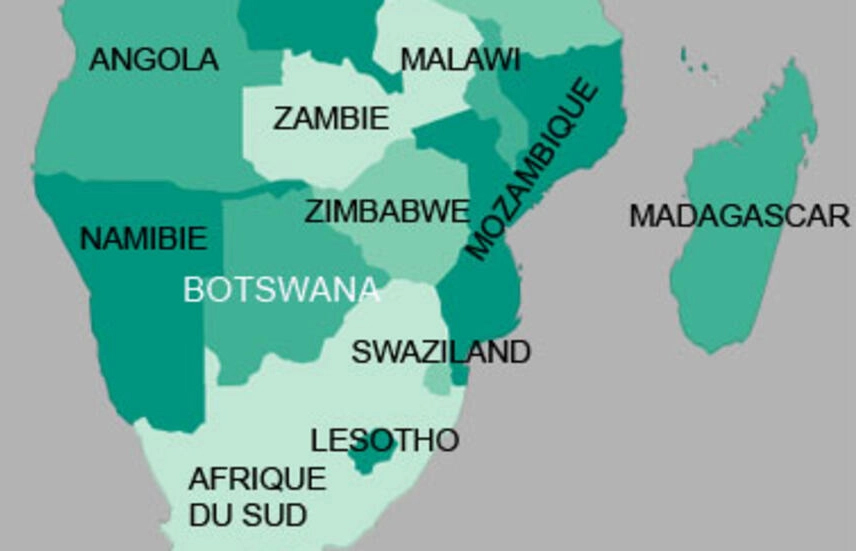
存档地图 / 南部非洲区域图。南非和纳米比亚试行每周4天工作制。 Carte Archive / Afrique australe. © RFI / S. Borelva
Economic development promotes social progress, which is a normal law of sustainable development. In southern Africa, South Africa and Namibia have begun to experiment with the four-day work week, with the ambition of leading a workplace revolution. Our RFI correspondents in the Southern Hemisphere and Africa interviewed pioneers in the field of human resources (RH) management in these two countries. South Africa, in particular, is preparing to expand the scope and scale of its trials.
autor: Nikola
According to a report by RFI's French website, various parts of the world have begun to implement a four-day work week on a trial basis, with the ambition of carrying out a workplace revolution. The African continent is not immune. South Africa has already started trying it in 2023, while its neighbor Namibia is preparing to launch.
- Some companies in South Africa have begun to officially implement the four-day work week system -
Our RFI Africa correspondent Claire Bargelès sent news from Johannesburg on Wednesday (April 24, 2024) that South Africa has begun a trial of a four-day working week. In 2023, 28 companies in South Africa will trial a four-day work week system. These enterprises mainly belong to service-oriented industries and have approximately 500 employees. Two of the companies have now completed the trial and officially entered into implementation.
The head of programs at French higher education institution EM Lyon oversaw the trial of a four-day working week last year. He believes the results are convincing. He said in an interview that employees and managers feel healthier physically and mentally than before. They have also become more efficient in the way they work to organize meetings. In order to optimize professional activities, they use the tools given by the enterprise in a more efficient way.
- South African HR leaders have mixed feelings about the four-day work week -
Some businesses in South Africa have decided to continue with this model. Taking Elnatan Computer Company as an example, the female head of human resources (RH) said in an interview that employees of the company have seen their physical and mental improvements. They participate more in the development of corporate culture. Enterprise customer satisfaction also remained stable throughout the trial period. This is still the case today. So, it's a success.

But in industries that did not participate in the pilot testing, there are doubts. The head of human resources at the South African cement production company (PPC-Pretoria Portland Cement) said that he believes this will bring greater pressure to some people who find it difficult to complete the five-day work task.
- Namibia prepares for a four-day working week to collect national data -

Archived Maps / African Countries: Namibia. Carte Archive / Afrique : la Namibie. © RFI Carte
Also in southern Africa, South Africa's neighbor Namibia is preparing to trial a four-day working week. The goal is to increase productivity by eliminating one working day. The project leader in Namibia explained his views on the initiative in an interview. He said that the four-day working week is an innovative concept. With topics like this, people always wait until the end. Usually, we look for the existing experiences of Western countries, and then adopt their data and try to apply it to our own environment. But this doesn’t always apply to all businesses.
According to the French website of RFI, the leader of Namibia's four-day work week project also said in an interview that the country wants to collect its own data. Even if people are not ready, they can take an assessment to understand how improvements can be made to increase productivity and reduce work hours.
Translator and editor: French radio station RFI Nicola)
Contact: Customer service
Phone: +86-18616961226
E-mail: Panafrican@foxmail.com
Add: Room B3.19/F,Tung Lee Commercial Building,91-97 Jervois Strieet,Sheung Wan,Hong Kong